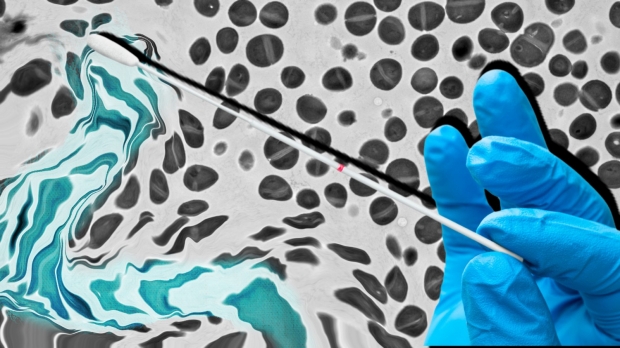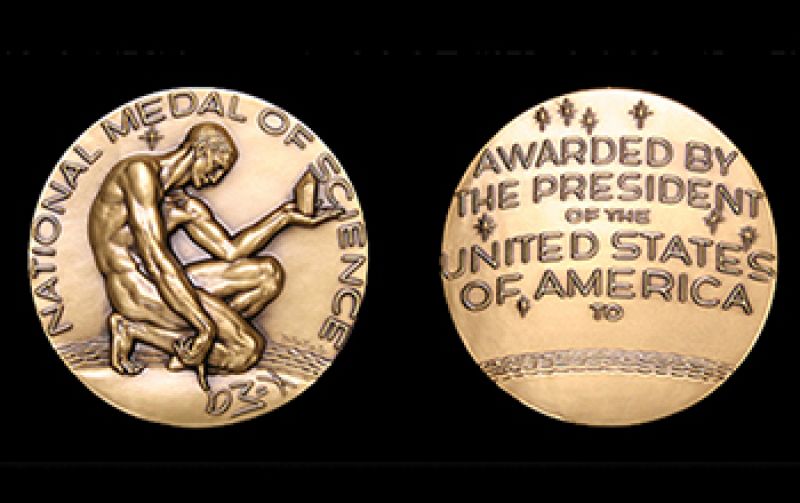BREAKING NEWS: Pioneering Stem Cell Researcher Shines Bright at Stanford
In a momentous occasion that underscores the immense impact of groundbreaking research on human lives, Helen Blau, a renowned Stanford University School of Medicine professor, has been awarded the coveted National Medal of Science. This prestigious honor, bestowed by the White House, recognizes individuals who have made extraordinary contributions to the advancement of science and engineering in the United States.

As a leading figure in the field of stem cell research, Dr. Blau’s tireless efforts have led to a deeper understanding of muscle biology and the development of innovative therapies for debilitating diseases. Her work at the Stanford University School of Medicine has been instrumental in laying the foundation for future breakthroughs in regenerative medicine.

Helen Blau Awarded the National Medal of Science
The Achievement

Stanford Medical Center is proud to announce that Helen Blau, the Donald E. and Delia B. Baxter Foundation Professor and Director of the Baxter Laboratory for Stem Cell Biology, has been awarded the prestigious National Medal of Science. This highly coveted honor recognizes Blau’s groundbreaking contributions to the field of regenerative medicine and cellular biology, cementing her place as a pioneer in stem cell research.
As the Director of the Baxter Laboratory, Blau has led a team of researchers in exploring the transformative potential of stem cells in treating a wide range of diseases and injuries. Her work has significantly advanced our understanding of how stem cells function, their ability to regenerate tissues, and their potential applications in developing novel therapies.
Blau’s dedication to stem cell research has yielded numerous impactful discoveries, propelling the field forward at an unprecedented pace. Her research has not only deepened our scientific knowledge but has also paved the way for groundbreaking advancements in regenerative medicine, offering hope for individuals battling debilitating conditions.

The Selection Process
The National Medal of Science is awarded to individuals who have made extraordinary contributions to knowledge in various scientific fields, including biology, mathematics, and engineering. The selection process is rigorous and selective, ensuring that only the most deserving candidates receive this prestigious recognition.
Nominations for the National Medal of Science are submitted by peers within the scientific community. These nominations are then carefully evaluated by the President’s Committee on the National Medal of Science (PCNMS), comprised of distinguished leaders in science and engineering from across the nation.
The PCNMS considers a range of factors when evaluating nominees, including the impact of their research, their recognition by peers, their contributions to innovation and education, and the significance of their work for the advancement of science and technology.
The global nature of scientific collaboration is also a key consideration in the selection process. The PCNMS recognizes the importance of international partnerships and the contributions of scientists from diverse backgrounds and institutions worldwide.

Analysis and Implications
Helen Blau’s award of the National Medal of Science highlights the transformative potential of stem cell research and its profound implications for the future of medicine. Her work has opened new doors in regenerative medicine, offering hope for treating a wide range of diseases and injuries that were once considered incurable.
Blau’s achievement is not only a testament to her individual brilliance but also a reflection of the collaborative spirit that drives scientific progress. Her research has inspired countless scientists around the world, fostering a global network of researchers dedicated to unlocking the full potential of stem cells.
Blau’s success serves as a powerful inspiration for women in STEM fields, demonstrating the remarkable impact that women can have on scientific discovery and innovation. Her journey to the pinnacle of her field serves as a beacon of hope and encouragement for aspiring scientists from all backgrounds.
Practical Aspects and Future Directions
The National Medal of Science award to Helen Blau underscores the critical importance of continued investment in stem cell research. As we delve deeper into the complexities of stem cell biology, we unlock new possibilities for developing life-changing therapies.
Funding for stem cell research is essential for driving innovation and accelerating the translation of scientific discoveries into tangible benefits for patients. Continued support from government agencies, private foundations, and the public is crucial for realizing the full potential of stem cell research.
International collaboration is another key factor in advancing stem cell research. Sharing knowledge, resources, and expertise across borders fosters a global community of scientists working together to solve some of the world’s most pressing health challenges.
Mentorship and leadership opportunities for women in STEM are essential for fostering a more inclusive and equitable scientific community. Helen Blau’s success serves as a powerful example of the transformative impact that women leaders can have on scientific progress.
Conclusion
Helen Blau’s monumental achievement in receiving the National Medal of Science solidifies her position as a pioneer in the field of aging research. Her groundbreaking work on cellular reprogramming, particularly the discovery of methods to rejuvenate aging cells, has opened up unprecedented possibilities for treating age-related diseases and potentially extending human lifespan. This recognition not only celebrates Blau’s individual brilliance but also shines a spotlight on the transformative potential of scientific inquiry in addressing some of humanity’s most pressing challenges. Blau’s dedication to understanding the intricate mechanisms of aging has paved the way for a new era of regenerative medicine. The implications of her research extend far beyond the laboratory, touching upon fundamental questions about the nature of aging, the limits of human potential, and the very definition of life itself. As we move forward, Blau’s work serves as a beacon of hope, inspiring future generations of scientists to push the boundaries of knowledge and explore the uncharted territories of longevity. Perhaps, in time, her discoveries will rewrite the narrative of aging, allowing us to not only live longer but to live healthier, more vibrant lives.

